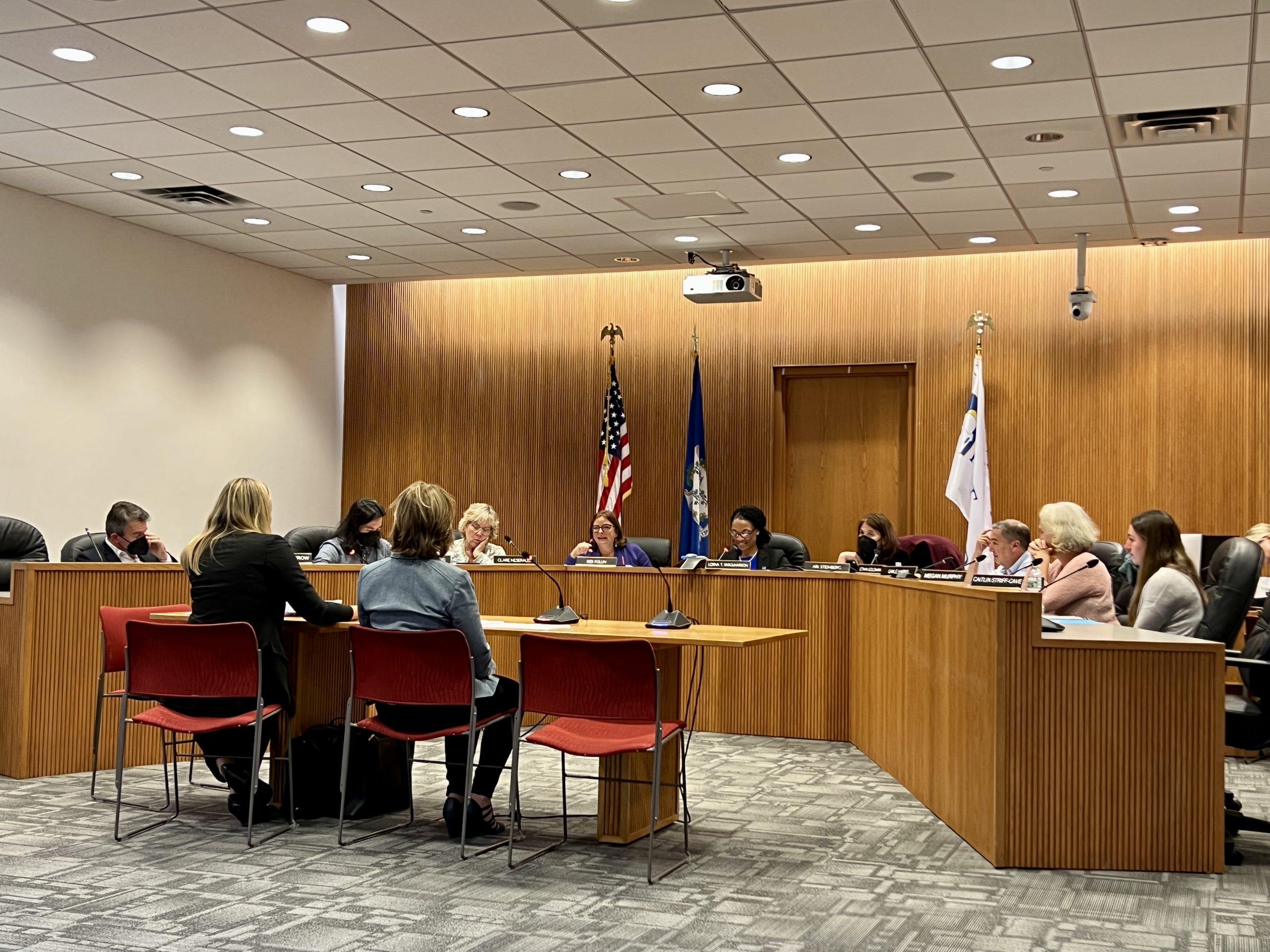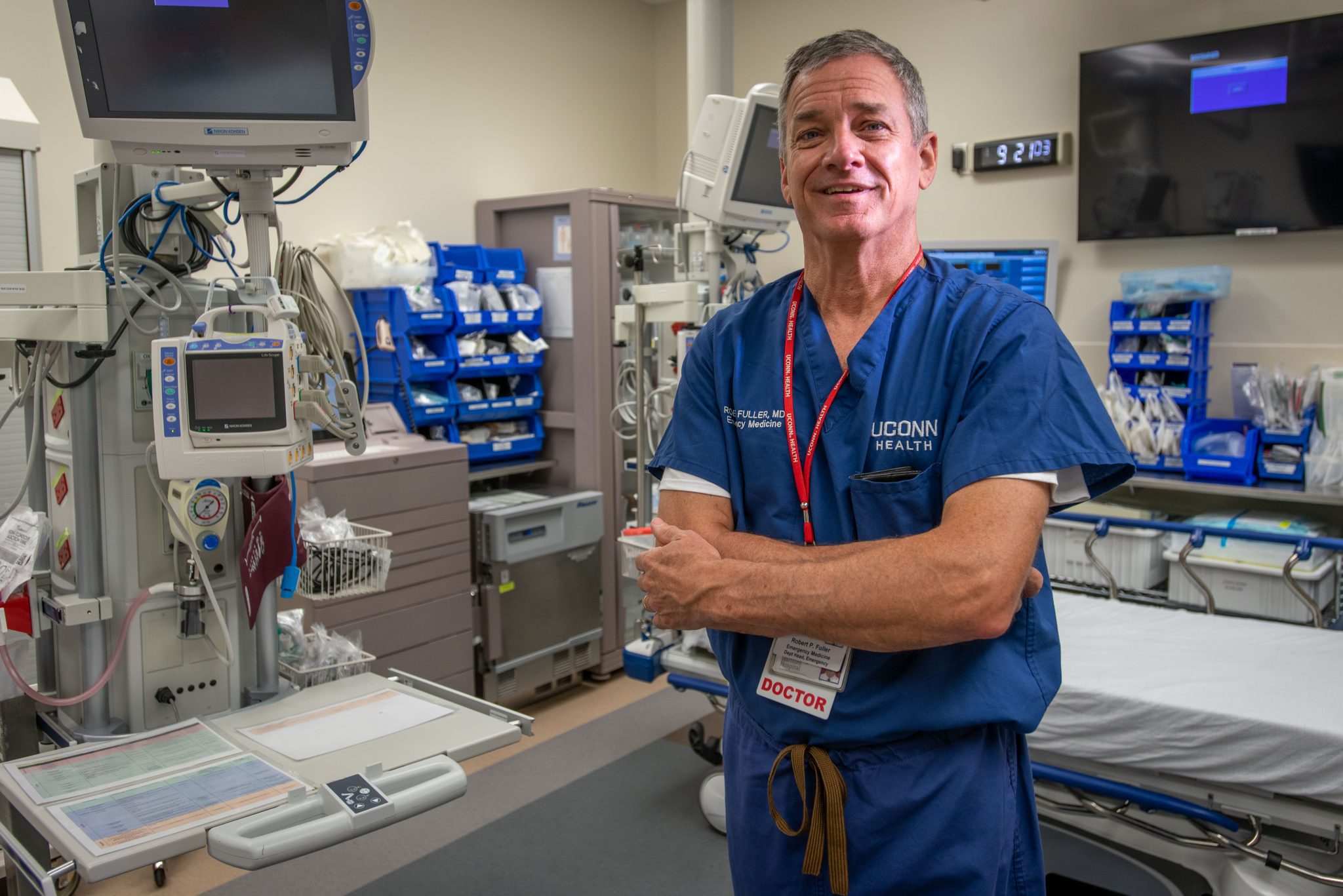West Hartford Board of Education Proposes Further Changes to Public Comment Policy

Audio By Carbonatix

West Hartford Board of Education meeting, Oct. 18, 2022. Photo credit: Ronni Newton
Because the West Hartford Board of Education’s Policy Committee made substantial edits to an updated meeting conduct and public comment policy, a first reading was held Tuesday night and the second reading will take place preceding a vote.
By Ronni Newton
The West Hartford Board of Education plans to update its public comment policy in order to ensure that members of the community who wish to testify regarding agenda items are given priority as speakers before the business portion of a meeting begins. A first reading of updated policy 8355 “Meeting Conduct/Public Comment” was held on Sept. 6, but because significant changes to that draft were made following two recent meetings of the Board’s policy committee, the new policy was reintroduced Tuesday night for a first reading.
While changes to the proposed policy wording were extensive enough to warrant reintroducing the updates for a first reading, according to Board of Education Chair Lorna Thomas-Farquharson the intent of the policy update did not change. The latest proposed update references the comment period prior to the business portion of the meeting in terms of number of speakers, rather than as a time limit. It indicates that no more than 10 people will be permitted to speak during the first comment period, rather than setting a limit at 30 minutes. The existing policy of limiting each speaker to three minutes during each comment period is unchanged.
A maximum of seven speakers per topic will be permitted during the first comment period – but that applies only items not on the agenda. There will no longer be any limit set on the number of speakers per topic who may address the Board of Education during the first comment period provided that their comments are related to items on the agenda.
The second public comment period, which is held at the end of Board of Education meetings, will not change. Speakers during the first comment period will continue to be given up to three more minutes to speak at the end of the meeting.
Board member Ethan Goldman, a Republican, had expressed concerns about changes to the comment policy when it was introduced last month, and had requested that interim Assistant Superintendent for Administration Anne McKernan provide some statistics regarding the number of speakers at meetings, and the impact those speakers had on delaying the start of the business portion of Board meetings.
McKernan’s written introduction of the proposed change in September noted: “Recently, the public comment period has sometimes been consumed by comments regarding matters that are not germane to the Board’s agenda, and extended public comment periods have significantly delayed the start of the business portion of some Board meetings. Concerns have been raised that such delays are not fair to persons waiting to present on agenda items, or to other members of the public interested in the Board’s deliberation and action on agenda items. It can also be unfair to persons who wish to comment on agenda items prior to final action.”
McKernan said Tuesday that over the course of the 2021-2022 academic year, there were 154 speakers who addressed the West Hartford Board of Education, for a total of 462 minutes. That was a significant increase from the prior year, when there were 37 speakers for 111 minutes. Not counting the most recent year, there were an average of 37 speakers per year over the previous four years, she said.
McKernan also reviewed the public comment policies of other Hartford area boards of education. “West Hartford seems to have one of the highest degrees of public speaking,” she said, which could in part be due to the Board having two meetings per month with two available public comment opportunities at each one. Some town boards of education only meet once a month, and there are a range of limits on the time permitted and number of speakers. “We certainly have among the most generous of opportunities,” she said, noting that she could not find another nearby district with greater public comment.
Two topics accounted for the majority of comments during the 2021-2022 year, McKernan said, with 37 of the 154 speakers addressing the topic of high school nicknames and mascots – which was an agenda topic during several Board meetings – and 46 speakers on the topic of Social and Emotional Learning (SEL).
In previous years there have been controversial topics discussed by the Board – including school start times and the holiday change on the district calendar from Columbus Day to Indigenous Peoples Day – but not nearly as many speakers.
Goldman said he continues to have concerns that not everyone will have the opportunity to address the Board at the beginning of the meeting. Not allowing commentary “looks like you’re hiding something,” he said. And although a vote will not be held until the second reading, Goldman said he is strongly opposed to the new public comment policy.
“I really feel that this policy just prioritizes,” Democrat Ari Steinberg said. She said it makes sense to allow people to speak on items that will be the subject of a vote so their voices can be heard, rather than making them wait until after a vote takes place. The new policy “allows prioritization to the agenda but does not silence anyone,” she said.
Republican Gayle Harris, who along with Thomas-Farquharson and Democrat Jason Chang is a member of the Board’s policy committee, said she feels the proposed change is a “good compromise to hearing the public and being mindful that we are running a meeting,” and takes into account the need to hear from the public but is also respectful of those participating in board meetings who may have small children or other time constraints. “Is it a perfect policy, probably not …” Harris said.
“This is a policy that does not dictate what people can say or if they can say something to us, just when,” Chang said, noting that there is unlimited public comment on agenda items.
The reason the Board has a policy committee is to recommend changes, Vice Chair Deb Polun said. If the change to the comment period doesn’t work out, “nothing is etched in stone here.” Polun said she thought the language of the policy update reviewed Tuesday was much more straightforward than what the Board had discussed in September.
Draft policy 8355, which would replace the existing policy 8355 that has been in effect since 1994, also addresses meeting conduct. The wording reviewed Tuesday night is as follows:
The Board welcomes public comment, as it represents an opportunity for members of the public to express their views to the Board on matters within the Board’s authority. Each member of the public wishing to speak may address the Board for three minutes at the beginning and three minutes at the end of each meeting for a total of six minutes during the Board’s two public comment periods. Persons commenting on agenda items shall be permitted to comment first. No more than ten persons shall be permitted to comment during the public comment period at the beginning of the meeting, provided that such limitation shall not apply to persons commenting on agenda items. A maximum of seven persons shall be allowed to comment on each subject matter.
No person shall interrupt a meeting or render the orderly conduct of such meeting unfeasible, and the chairperson may order any individual who engages in such conduct removed.
While the Board will not respond to comments made in public session, it will consider such comments in its policy deliberations and, where appropriate, will refer comments to school department personnel for their review as part of their administrative functions.
The final sentence of the first paragraph will be further discussed by the Board’s policy committee, Chang said in response to a question from We-Ha.com, to ensure that the policy is clear and that the “maximum of seven persons” does not apply to subject matter that is an agenda topic.
The Board has not scheduled a second reading and vote on the revised policy.
Prior to Tuesday’s meeting, a group of three Conard students representing the school’s SAVE club, as well as six other individuals, addressed the Board during the public comment period. Two speakers – Tracey Wilson and Beth Bye – expressed their support for the new policy on public comment as a means of prioritizing communication on policy matters being voted on by the Board.
Like what you see here? Click here to subscribe to We-Ha’s newsletter so you’ll always be in the know about what’s happening in West Hartford! Click the blue button below to become a supporter of We-Ha.com and our efforts to continue producing quality journalism.




Concerning public imput to the BOE, I suggest that the public be able to ask questions of the members that are responded to in writing. The q/a is to be made available on the BOE’s webpage. Citizens should not be encumbered to go the Freedom of Information Act route unless absolutely necessary.